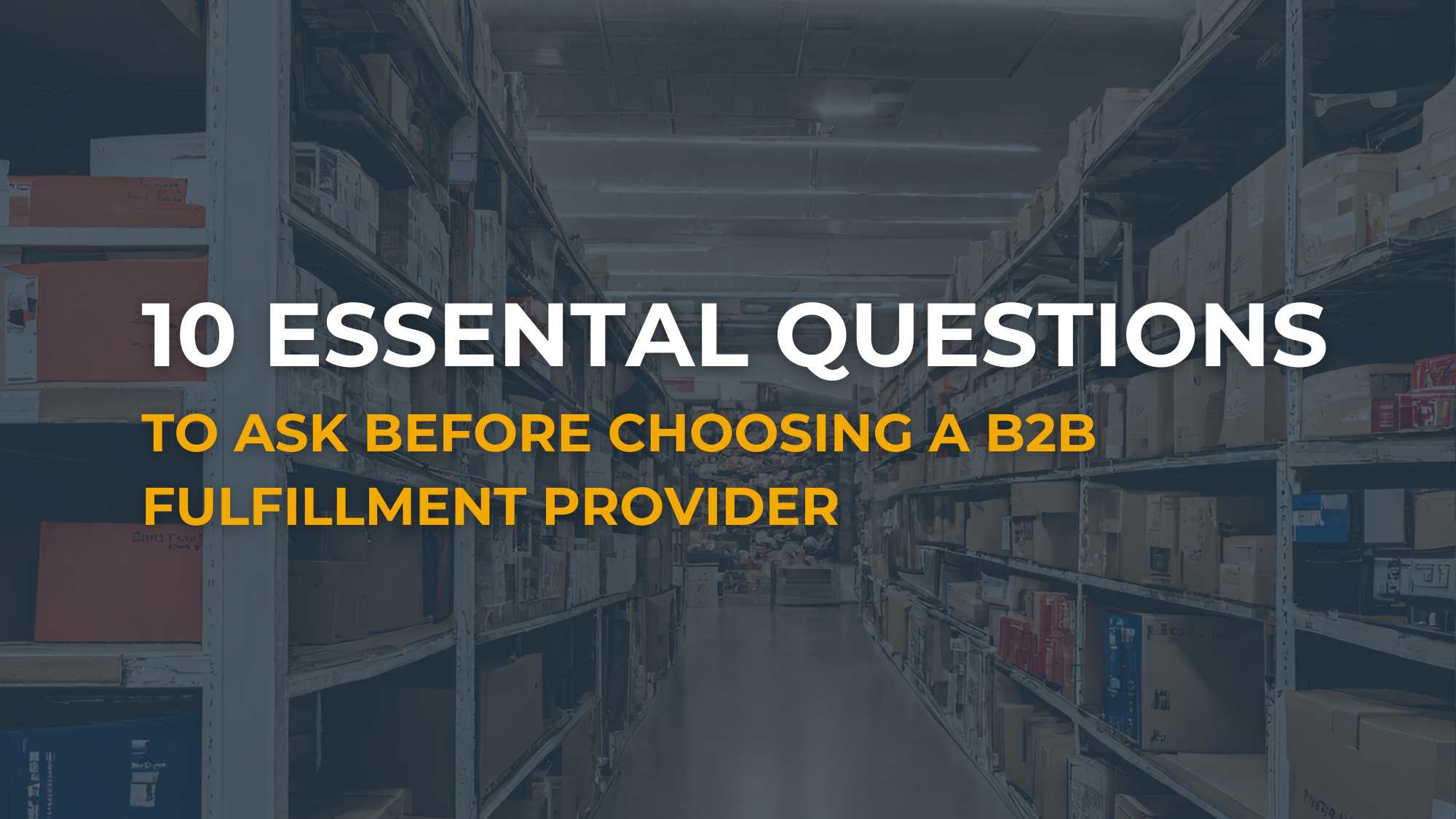
Choosing the right B2B fulfillment provider is pivotal to your ecommerce business’s B2B success. When searching for the top fulfillment company for your online business, it’s important to understand the intricacies of their operations, financial requirements, and technology to ensure they’re not just a match, but a partner for growth. In this blog, we’ll cut through the complexity with 10 essential questions that will lay bare the essence of your potential partners, guiding you to a decision that elevates your operations and customer satisfaction to new heights. Let’s dive in and uncover the keys to a partnership with a B2B fulfillment provider.
1. How Long Has Your Potential Fulfillment Partner Been in Business?
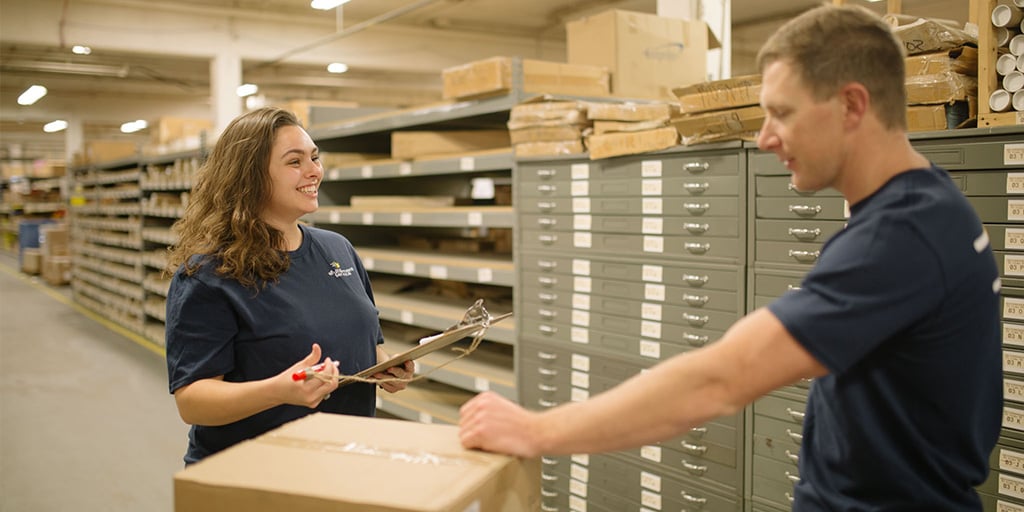
The longevity of a B2B fulfillment provider is a critical indicator of its reliability, experience, and ability to navigate the complexities of supply chain management. A seasoned provider is not just a testament to their resilience but also shows the rich insights they’ve garnered over the years, which can significantly benefit your business. Here’s why this single question is so crucial:
- Experience Speaks Volumes: A company that has been in the fulfillment business for many years is likely to have encountered and solved a wide array of challenges. This experience can be invaluable in foreseeing potential issues and preventing them before they impact your operations.
- Adaptability to Change: The logistics and fulfillment landscape is continually evolving. A provider that has been around for a considerable period has proven its ability to adapt to changes in market demands, technology, and business models, ensuring they can support your business as it grows and evolves.
- Established Relationships: Long-standing fulfillment companies usually have robust relationships with carriers, suppliers, and technology providers. These relationships can lead to better rates, higher service levels, and more options for you.
- Trust and Reliability: Longevity can be an indicator of trustworthiness. Companies that have sustained operations over many years have likely done so by building trust with their clients through consistent, reliable service delivery.
What to ask:
- “How long have you been providing fulfillment services?”
- This question can open the door to understanding not just their tenure but the depth of their expertise and their journey in adapting to the fulfillment industry’s changes over time.
Remember, while longevity is a valuable indicator of a fulfillment provider’s stability and reliability, it’s also important to consider other factors such as their expertise in your specific industry, technological capabilities, and scalability to meet your business’s future needs.
2. What Are the Full Costs and Fees Associated with Your Fulfillment Services?

When diving into a partnership with a B2B fulfillment provider, one of the most critical considerations is the detailed structure of their fees and costs. This broad question encompasses various financial aspects of the fulfillment service, providing a comprehensive view of what your business will be investing in. Here’s why understanding the full scope of fees and costs is fundamental:
- Transparent Pricing: A clear understanding of all potential fees—including pick and pack fees, storage charges, receiving costs, and account management fees—ensures there are no surprises. It allows for accurate budgeting and financial forecasting.
- Comparison Between Providers: Knowing the complete fee structure enables you to compare potential providers on a like-for-like basis. This comparison isn’t just about finding the cheapest option but identifying the best value for your specific needs.
- Customization and Scalability: Some fulfillment services offer customizable pricing models based on your business’s volume and specific requirements. Understanding how costs can be tailored to fit your needs is crucial for scalability and long-term growth.
- Hidden Fees: Inquire about any potential hidden or additional costs that could arise. These could include special project fees, setup fees, or additional costs for handling returns. Knowing these details upfront can prevent unexpected expenses down the line.
What to ask:
- “Can you provide a detailed breakdown of all the fees and costs associated with your fulfillment services, including any additional charges that might apply under specific circumstances?”
This question ensures you have a clear, comprehensive understanding of the financial commitment involved in your fulfillment partnership. It helps in making an informed decision that aligns with your business’s budgetary constraints and strategic financial planning.
3. How Will Your Fulfillment Provider Support Your Business with Dedicated Client Services?
The level and quality of client services provided by a B2B fulfillment partner can dramatically influence your satisfaction and operational success. It’s not just about having someone to call when things go wrong; it’s about proactive support, guidance, and partnership in driving your business forward. Here’s a deeper dive into why this aspect is so crucial:
- Dedicated Account Management: Having a dedicated account manager means you have a go-to person who understands your business, preferences, and challenges. This personalized support ensures quicker response times and more effective solutions tailored to your specific needs.
- Performance Reviews and Optimization: Regular reviews of account performance with your dedicated manager can uncover opportunities for optimization, cost savings, and process improvements. It’s about continuous improvement and leveraging insights to enhance your fulfillment strategy.
- Communication and Proactivity: A dedicated support team can proactively inform you about any issues, updates, or changes that might affect your service. This forward-looking approach allows for better planning and response strategies, minimizing disruptions to your operations.
- Building a Partnership: Over time, your account manager can become an extension of your own team, understanding your business deeply and able to anticipate needs or recommend innovations. This partnership can be a significant asset in navigating the complexities of supply chain management and growth.
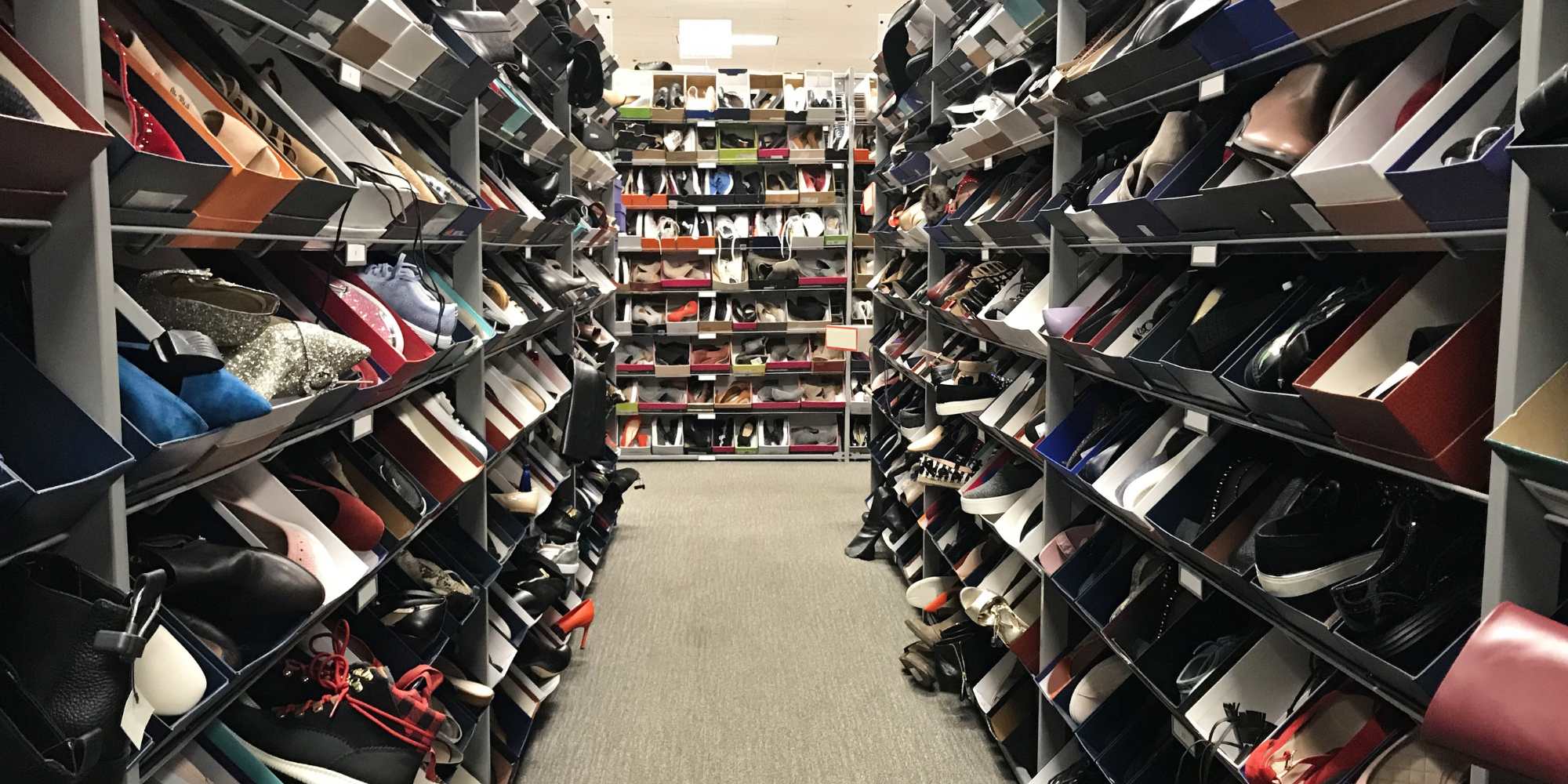
What to ask:
- “Can you describe the client services support I can expect, including the provision of a dedicated account manager and how frequently they will review my account performance?”
This question gets to the heart of how well a fulfillment provider is prepared to support your business, not just in daily operations but in strategic growth and adaptation to changing market conditions. It helps you gauge the level of commitment and service you’ll receive, ensuring your fulfillment partner is genuinely invested in your success.
Want to learn more about B2B Fulfillment?
Check out our full B2B Fulfillment Guide and see if it’s the right strategy for your ecommerce business!

4. What Technology and Integration Capabilities Does Your Fulfillment Provider Offer?
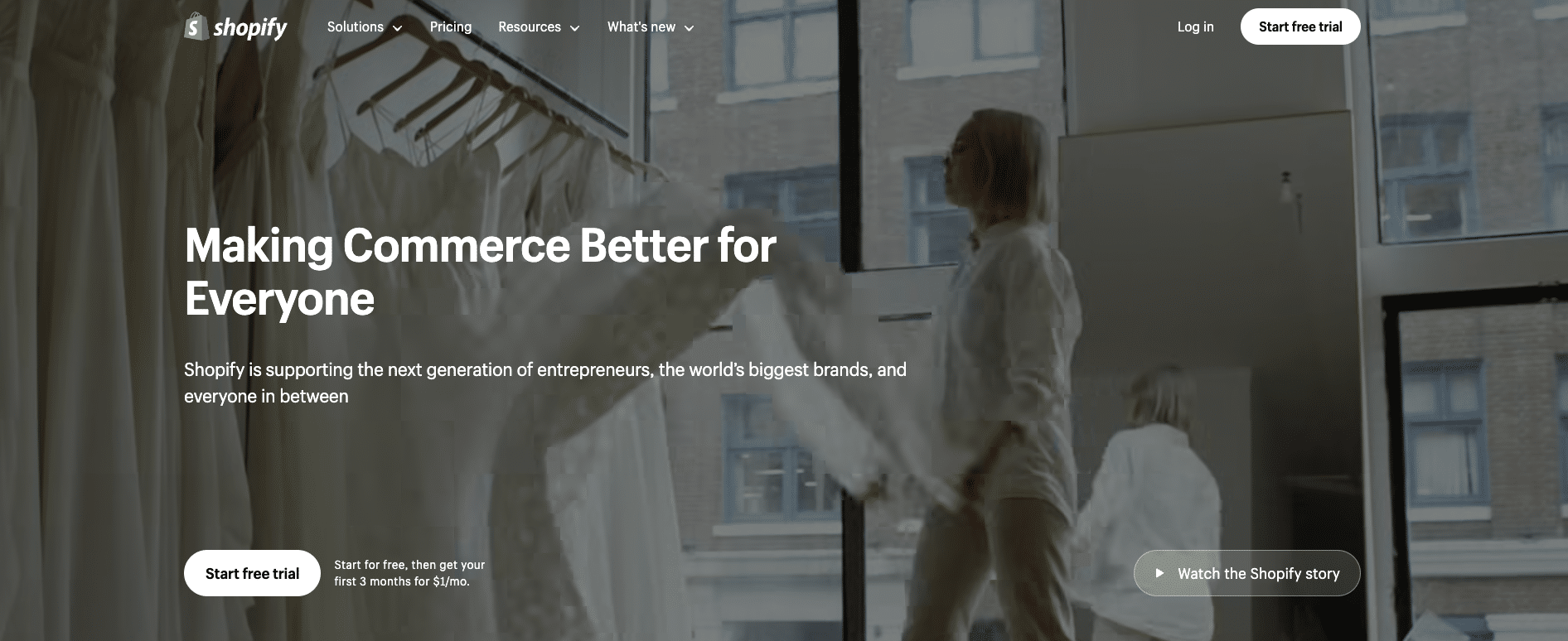
In today’s B2B eCommerce landscape, the integration between your ecommerce platform and the fulfillment services you choose is non-negotiable for maintaining a seamless operational flow. This critical aspect involves not just the basics of order processing but extends to reporting, analytics, and enhancing the customer experience through self-service options. Here’s why it’s essential to delve into a provider’s tech capabilities:
- Ecommerce Platform Compatibility: The ability for a fulfillment service to integrate smoothly with your ecommerce platform ensures that order information flows seamlessly from the customer’s click to the warehouse floor. It minimizes errors, speeds up order processing, and enhances overall efficiency.
- Advanced Reporting and Analytics: Access to detailed reporting and analytics allows you to monitor key performance indicators (KPIs), understand customer behavior, and make data-driven decisions to optimize your inventory and shipping strategies.
- Customer Self-Service Options: Features that allow your customers to track their orders, manage returns, or even interact with their order details can significantly enhance the customer experience, leading to higher satisfaction and loyalty.
- Scalability and Future-proofing: As your business grows, your technology needs will evolve. A fulfillment provider with a strong technology offering can scale with you, introducing new features and integrations that support your expansion and adapt to future ecommerce trends
What to ask:
- “Can you detail your technology and integration capabilities, specifically regarding platform compatibility, reporting, analytics, and customer self-service options?”
This question is your gateway to understanding how well a fulfillment provider’s technology stack can align with your operational requirements and future growth ambitions. It’s about ensuring that the backbone of your fulfillment operations is robust, adaptable, and forward-thinking, positioning your business to thrive in an increasingly competitive ecommerce landscape.
5. How Does Your Fulfillment Provider Excel Operationally Across Key Areas?
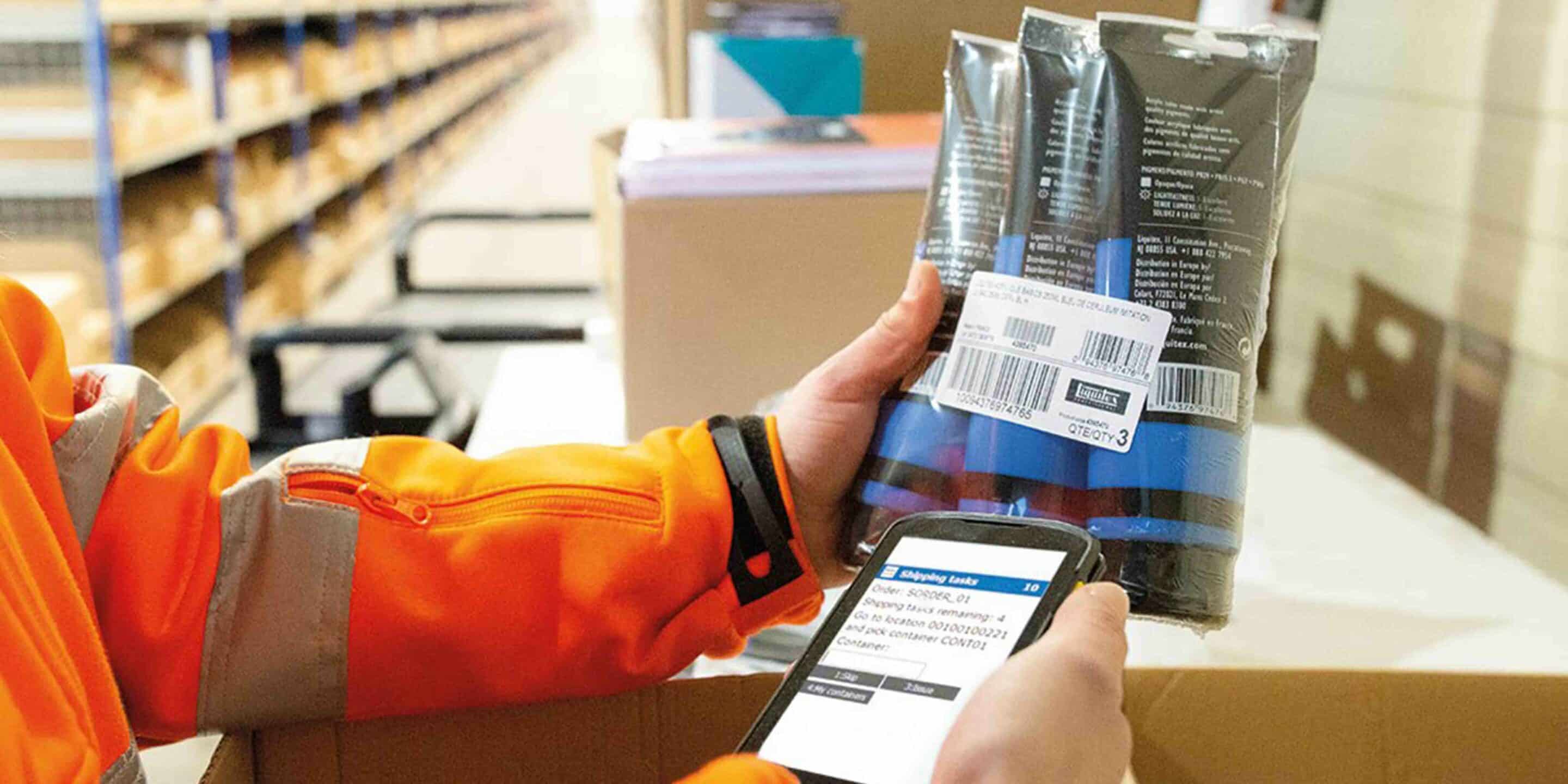
Operational excellence is the backbone of any successful B2B fulfillment partnership, impacting everything from customer satisfaction to your bottom line. It’s crucial to understand how a provider manages the entire operational spectrum, from handling returns to guaranteeing timely delivery.
What to ask:
“Can you explain your operational processes across key areas such as returns and exchanges, real-time inventory tracking, managing damaged or lost products, and ensuring high order accuracy and prompt shipment?”
This question covers the essential operational domains critical for a fulfillment service to support your business effectively:
- Returns and Exchanges: Understand their process for handling returns, focusing on minimizing inconvenience and cost. The goal is a frictionless system that maintains customer satisfaction and retention.
- Real-time Inventory Tracking: Accurate and immediate inventory tracking is vital for managing stock levels efficiently, avoiding overstocking or stockouts, and making informed marketing decisions.
- Damaged or Lost Products: How the provider deals with overages, shortages, and damages (OS&D) can significantly impact your customer satisfaction and financial health. Their communication and resolution processes in these situations are crucial.
- Order Accuracy and Timely Shipment: The core of fulfillment services lies in their ability to accurately fulfill orders and ship them promptly. Understanding the measures they take to maintain this accuracy and their approach to resolving errors is vital for trust and customer loyalty.
By asking this singular, comprehensive question, you gain insights into the fulfillment provider’s operational robustness and their ability to handle the complexities of supply chain management. This understanding helps ensure that your choice of provider will bolster your operational efficiency, uphold your brand’s reputation, and contribute positively to your customers’ experiences.
6. How Well Does Your Fulfillment Provider Integrate with E-commerce Platforms for B2B Operations?
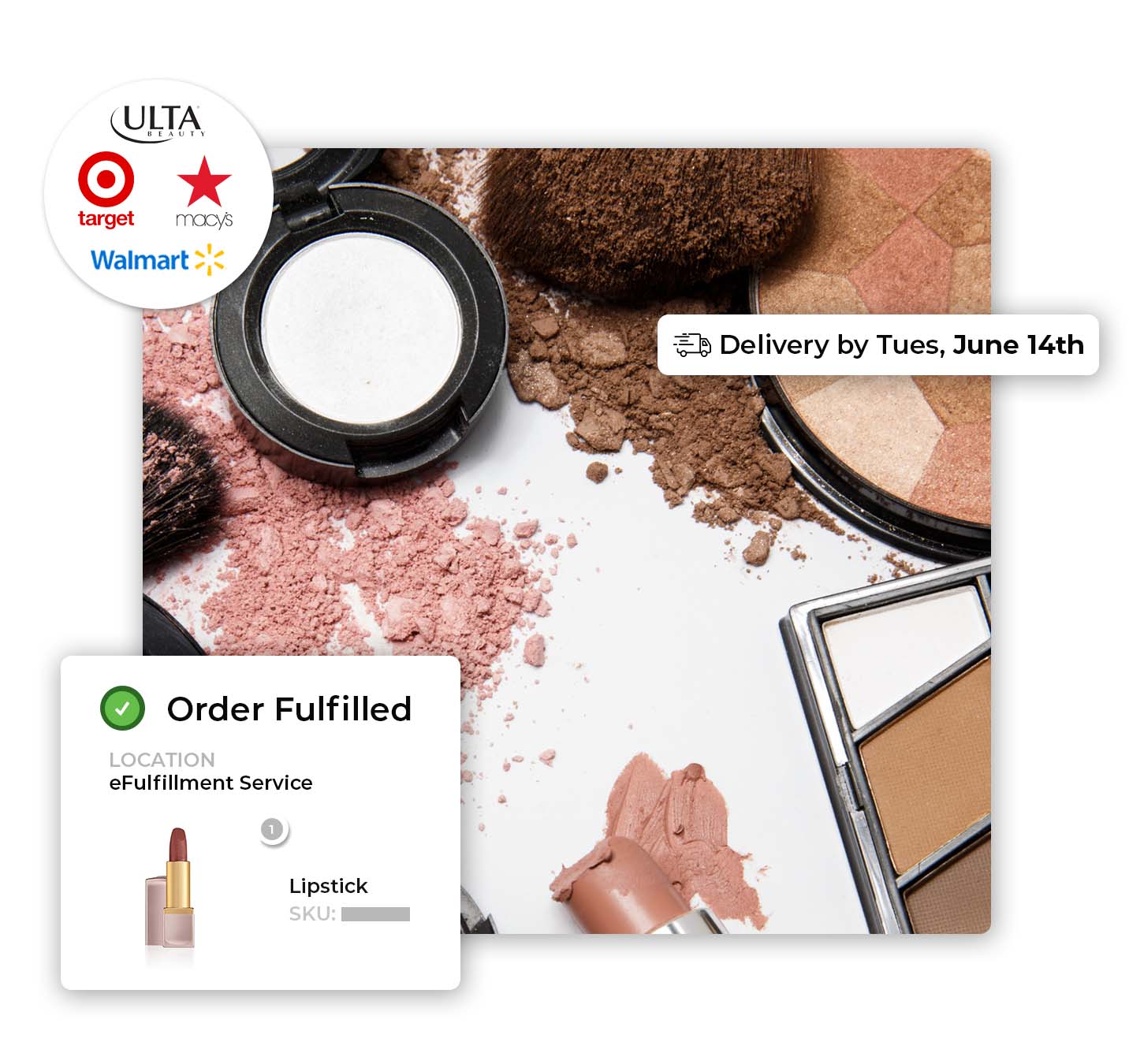
In the dynamic world of B2B e-commerce, the ability of your fulfillment provider to integrate seamlessly with your e-commerce platform stands as a cornerstone for operational efficiency and customer satisfaction. This single focus is not just about ensuring the smooth flow of order processing and inventory management; it’s about aligning technological capabilities with the unique demands of B2B transactions. Here’s a more focused approach on why this question is so pivotal:
- Seamless Operational Flow: The integration between e-commerce platforms and fulfillment systems must be seamless to ensure that orders are processed efficiently, inventory levels are updated in real time, and customers receive their orders promptly. This level of integration is crucial for maintaining a smooth operational flow, which is the backbone of customer satisfaction and business growth in the B2B sector.
- Real-Time Data Accuracy: Accurate, real-time data is essential for making informed decisions about stock levels, order fulfillment, and customer service. A fulfillment provider that can integrate effectively with your e-commerce platform ensures that you have access to up-to-date information, enabling you to manage your operations more effectively and respond swiftly to any issues or opportunities.
- Enhanced Customer Experience: In B2B transactions, where orders can often be complex and customer expectations high, the ability to provide a seamless and efficient ordering and fulfillment process is a significant factor in achieving customer satisfaction. Integration capabilities that support features like order tracking, easy returns, and transparent communication can elevate the customer experience, fostering trust and long-term relationships.
What to Ask:
“Can you detail how your fulfillment system integrates with e-commerce platforms, particularly focusing on features that support B2B operations such as order processing, inventory management, and customer service?”
This question zeroes in on the critical aspect of technological integration, ensuring that your fulfillment provider is not only capable of meeting the current demands of B2B e-commerce but is also poised to adapt and thrive as technologies and market dynamics evolve.
7. How Flexible is Your Fulfillment Provider’s Range of Services to Support Your Business Growth?

The flexibility and breadth of services offered by a fulfillment provider are crucial indicators of their ability to support your business’s growth and adapt to its evolving needs. This flexibility encompasses not just basic pick-and-pack services but extends to custom packaging, kitting, assembly, and other value-added services that can enhance your product offerings and customer experience. Here’s why understanding the scope of a provider’s services is essential:
- Custom Packaging Solutions: Custom packaging allows your brand to stand out and can significantly enhance the unboxing experience for your customers. It’s a powerful tool for brand reinforcement and customer satisfaction.
- Kitting and Assembly Services: The ability to combine multiple products into a single package or assemble products before shipping can open up new product offerings and streamline the fulfillment process, potentially reducing costs.
- Value-Added Services: Additional services like engraving, gift messaging, subscription box assembly, or even quality checks add layers of customization and quality control that can set your brand apart in a crowded market.
- Scalability and Customization: A provider that offers a broad range of services is better equipped to scale with your business as it grows, offering tailored solutions that meet the changing needs of your customers and product lines.
What to ask:
- “Can you detail the range of services you offer, including custom packaging, kitting, and any other value-added services, and how you can tailor these services to fit my business needs?”
This question will help you gauge a fulfillment provider’s commitment to supporting your business’s unique requirements and their capability to adapt their services to suit your evolving strategies. It’s about finding a partner who can offer not just the services you need today but also those you might need tomorrow, ensuring your fulfillment strategy remains a driving force behind your business growth.
8. Does the B2B Provider Have Accreditations and Client References?
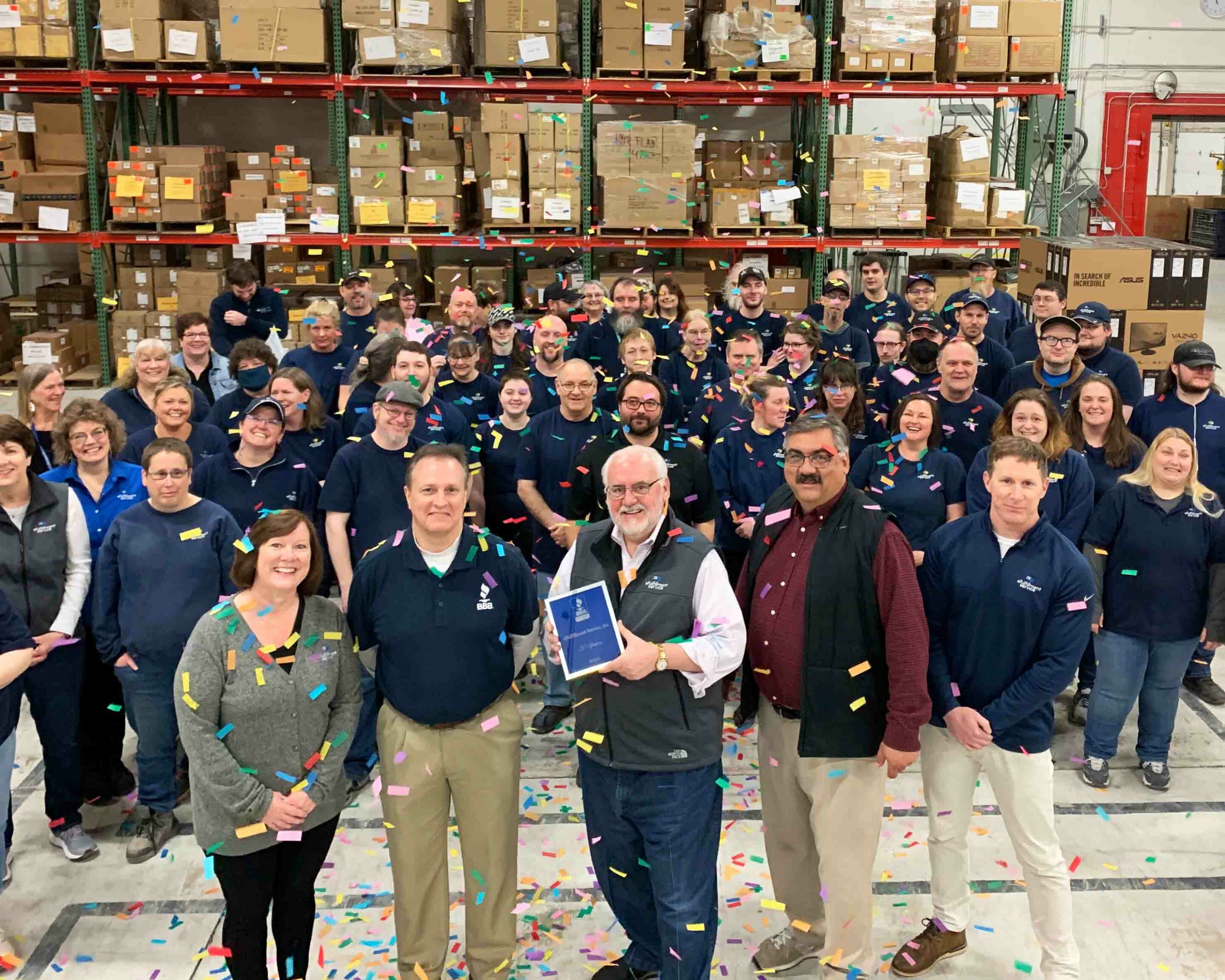
Choosing a fulfillment provider is a decision that hinges not only on the services offered but also on the trustworthiness and reliability of the provider. Accreditations and client references serve as vital indicators of a provider’s reputation and the quality of their service. Here’s why emphasizing this area is critical:
- Accreditations Validate Standards: Accreditations from recognized industry bodies signify that a fulfillment provider meets certain operational, quality, and ethical standards. These certifications are earned through rigorous assessment processes, offering you assurance about the provider’s capabilities and commitment to excellence.
- Client References Offer Real Insights: Speaking directly with current or former clients provides invaluable insights into the provider’s day-to-day operations, reliability, and how they handle challenges. Client testimonials can highlight strengths you’ll benefit from or red flags to avoid.
- Benchmarking Service Quality: Comparing the experiences of similar businesses in your industry with the fulfillment services can help benchmark expectations. Knowing how a provider has successfully managed businesses with similar volumes, challenges, or industry-specific needs can guide your decision-making process.
- Building Confidence: Ultimately, accreditations and positive references build confidence in your choice. They reduce perceived risk by demonstrating that the provider is recognized for their professionalism and has a track record of satisfying clients’ needs.
What to ask:
- “Can you provide details of your industry accreditations and share client references that speak to your service quality and reliability?”
Asking this question helps ensure you’re considering a fulfillment provider whose standards and performance are verified by credible sources. This step is about doing your due diligence, ensuring the partnership you enter into supports your business’s growth and reputation with a foundation of trust and proven expertise.
9. How Does a Fulfillment Provider’s Scalability and Space Capabilities Align with Your Business Growth?
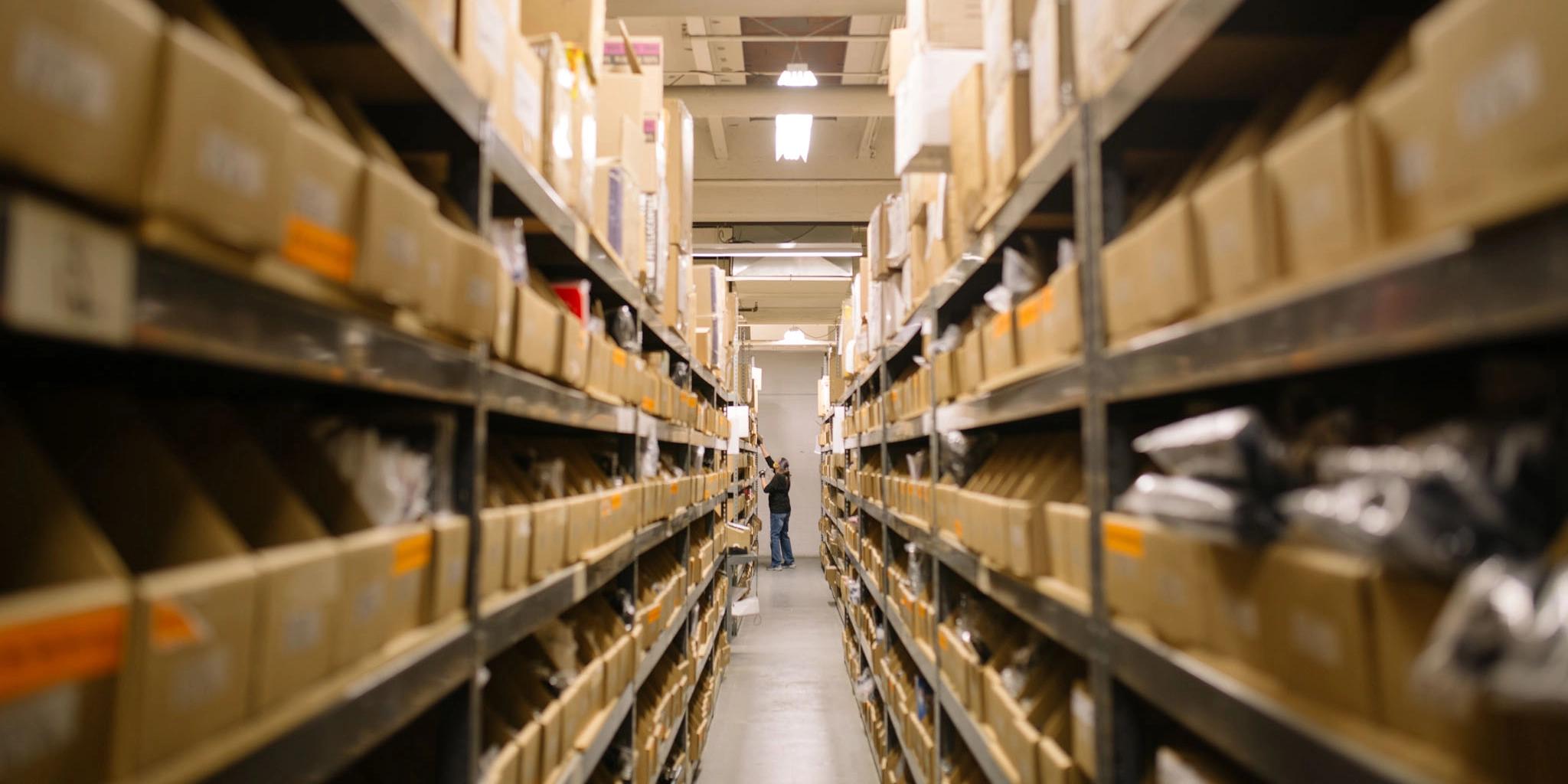
Scalability is a cornerstone of any business’s growth strategy, especially when it comes to logistics and fulfillment. Ensuring that your chosen B2B fulfillment provider can not only meet your current needs but also grow with you is crucial. Here’s why focusing on scalability and space requirements is essential:
- Warehouse Size and Flexibility: The provider’s warehouse size and their flexibility in allocating space as your business scales are paramount. A provider that can accommodate growth without requiring you to switch services or face significant disruptions ensures smoother scalability.
- Handling Volume Fluctuations: Businesses often experience seasonal peaks or unexpected surges in orders. A fulfillment provider’s ability to handle these fluctuations without compromising on service quality or delivery times is a critical factor in maintaining customer satisfaction and operational efficiency.
- Minimum and Maximum Order Volumes: Understanding a provider’s policies regarding minimum and maximum order volumes is vital. These policies can impact your ability to scale, especially if there are restrictions that do not align with your growth trajectory or if there are penalties for volume variances.
- Expansion Capabilities: Beyond the current capacity, inquire about the provider’s future expansion plans or their network of warehouses. This can offer insights into how well they can support your long-term growth, including geographic expansion.
What to ask:
- “Can you describe how your warehouse capacity and order handling capabilities can scale with my business’s growth, including your policies on order volume fluctuations?”
Asking this question will help you understand the provider’s capacity to be a long-term partner, one who can support your business as it evolves and grows. It’s not just about the space available today but also about how the provider plans to adapt to the changing needs of your business, ensuring that you won’t outgrow their services or face unnecessary hurdles as you expand.
Ship B2B Orders Effortlessly!
10. How Does Your Fulfillment Provider Ensure Data Security and Regulatory Compliance?
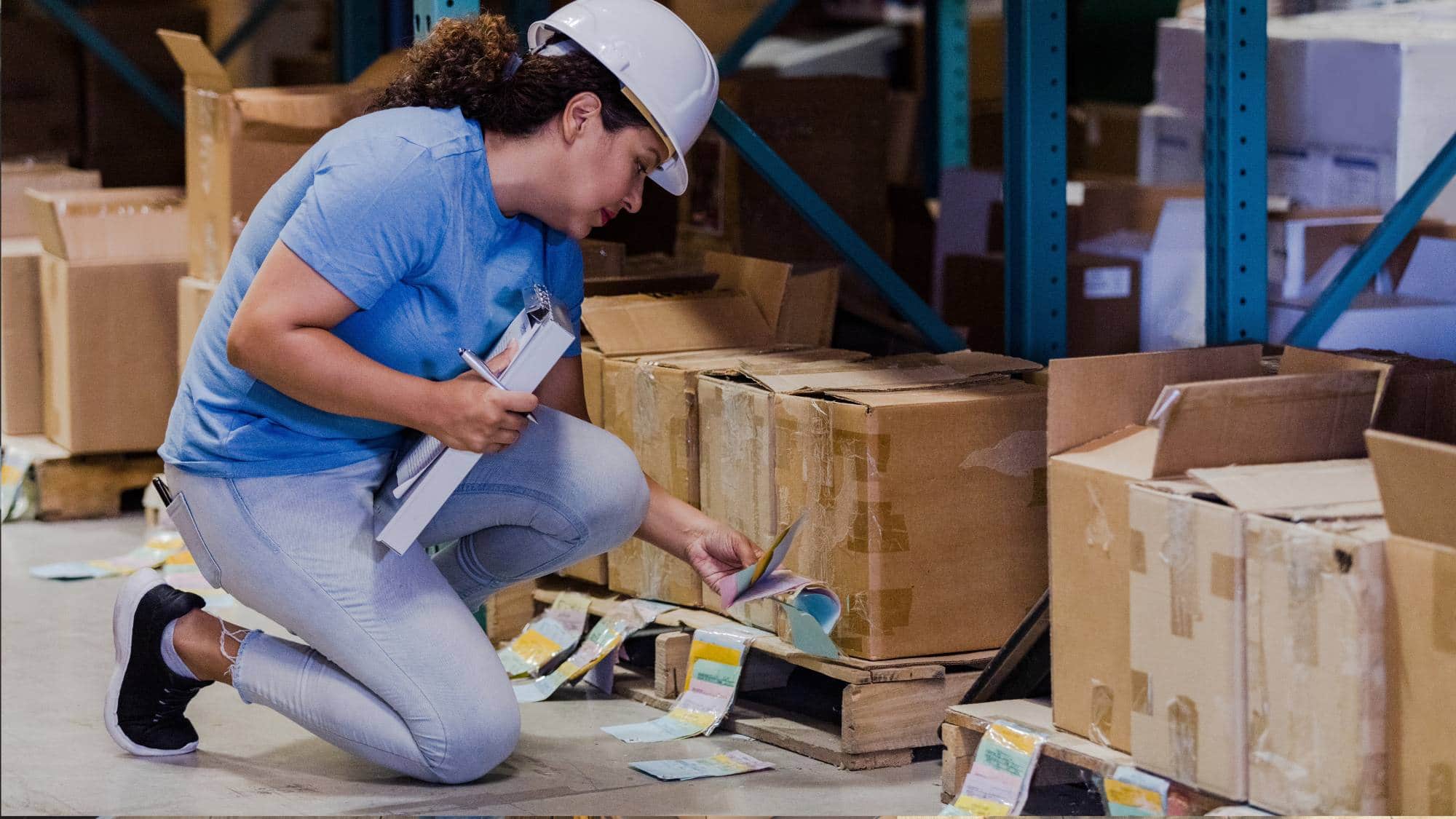
Data security and compliance with regulations are not just additional features but foundational elements of any business operation, especially when it involves third-party fulfillment services. Ensuring your fulfillment provider treats these aspects with the seriousness they deserve is vital for protecting your business and your customers. Here’s a focused approach on why this question is indispensable:
- Data Handling Practices: Understanding what customer data your fulfillment provider collects, how it is used, and who has access to it is crucial. This information should be protected with the highest standards of security to prevent breaches that could damage your reputation and customer trust.
- Security Measures: Inquiring about the specific security measures and technologies (like encryption, firewalls, and secure data storage) the provider employs to safeguard data helps assess their capability to protect sensitive information effectively.
- Regulatory Compliance: Compliance with local and international data protection regulations (such as GDPR in Europe, CCPA in California, or other relevant privacy laws) is non-negotiable. Your provider must demonstrate their processes for adhering to these regulations to avoid legal penalties and reputational damage.
Regular Audits and Updates: Ask about the frequency of their security audits and how they keep their security practices up-to-date with emerging threats. This ongoing vigilance is crucial for maintaining robust data protection over time.
What to ask:
- “Can you detail your data security measures, privacy policies, and how you ensure compliance with applicable data protection regulations?”
This question underscores the importance of not just operational efficiency but also the ethical responsibility of handling customer information. It reflects your commitment to customer privacy and the legal obligations of your business, ensuring that your fulfillment partner’s practices align with these priorities.
Conclusion
In wrapping up, selecting the right B2B fulfillment provider is a strategic decision that goes beyond mere operational needs. It’s about finding a partner aligned with your vision, capable of scaling with your growth, and committed to excellence in every facet of their service. The 10 questions we’ve explored are a great start in this journey, designed to reveal the depth, adaptability, and reliability of potential providers. From their experience and technological capabilities to their commitment to customer service and security, each question is a step towards a partnership that not only supports but propels your business forward.
Next Steps
Whether you’re refining existing operations or building your fulfillment strategy from the ground up, the principles outlined here can serve as a guide for improved efficiency, customer satisfaction, and business growth.
To further your journey, explore additional resources and seek out professional services that can offer tailored advice and solutions for your specific challenges:
Further Resources and Professional Services
- eFulfillment Service: A leading provider of fulfillment services tailored for small to medium-sized businesses, offering inventory management, order processing, and shipping solutions that can adapt to your growing needs.
- Supply Chain Dive: An online publication offering news and analysis on the latest trends and insights in supply chain management and logistics.
By embracing a comprehensive approach to B2B fulfillment and continuously seeking out knowledge and professional expertise, businesses can navigate the complexities of the e-commerce landscape with confidence.

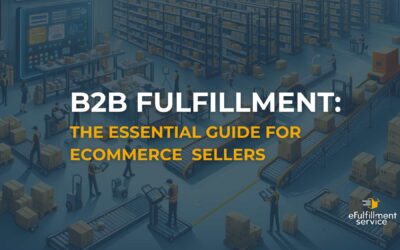


0 Comments